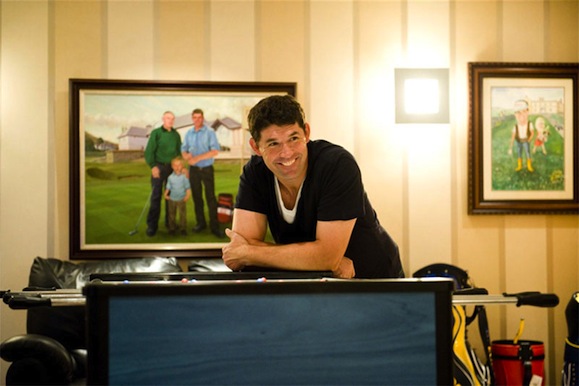Three-time major champion golfer Pádraig Harrington announced in February that he had undergone treatment for skin cancer. As he told Matt Cooper of Today FM’s The Last Word: “I had a number of skin cancers removed off my face. When you get a symptom, do something about it. Don’t ignore it.” Harrington mentioned getting the cancerous spots removed almost off-handedly in answering a question about how his consciousness about his health had changed going into his forties. He did not go into further detail regarding his own treatment, but instead urged listeners to be proactive about their own health.
Harrington’s father, Patrick, passed away in 2005 from esophageal cancer, and the golfer is now a patron of the Oesophageal Cancer Fund Ireland. He mentions his father’s passing as a cautionary tale that inspired him to be more attentive to his own well-being, noting in his interview with The Last Word that Patrick had had “symptoms that he didn’t do anything about.” Harrington even reminisced about how he’d gone through years of buying antacid tablets for his father’s chronic indigestion (a major symptom of esophageal cancer).
Harrington used his father’s story, combined with his own recent cancer scare, to bolster his case.
“He just didn’t go do anything about it because that’s the nature of men in Ireland, especially older men,” he said.
“It’s a little bit of hardship going [to the doctor], but you feel a lot better afterward. It’s easier to clear these things up at the start rather than wait till there is a problem.”
Harrington went on The Last Word in February to promote Lollipop Day in Ireland, which promotes esophageal cancer research, as well as awareness for the disease, which (along with stomach cancer) is the second most deadly cancer after lung cancer. According to the Oesophageal Cancer Fund, “approximately 70 percent of patients have esophageal cancer symptoms for over three months before talking to their GP.”
Though Harrington may have been speaking specifically about eso-phageal cancer and his father’s own stubbornness about seeking treatment, his advice is especially useful for anyone with potential skin cancer symptoms. Early detection and diagnosis, especially in the case of skin cancer, can save lives; the Irish Cancer Society reports that almost 90 percent of skin cancer cases are curable with early action.
Today, diagnosis and treatment of skin cancer seems to be almost commonplace, especially among the Irish and Irish American communities; in the United States, more than 3.5 million cases are diagnosed in every two million people annually, and 20% of the American population will develop skin cancer in their lifetime. The Skin Cancer Foundation’s website even has a specific section for golfers, as their sport requires so many hours in the sun. Though skin cancer has almost become so widespread that Harrington’s mention of his sunspot removal doesn’t pause conversation, it does not lessen the seriousness of a disease that, left unchecked, can easily kill. ♦


Leave a Reply